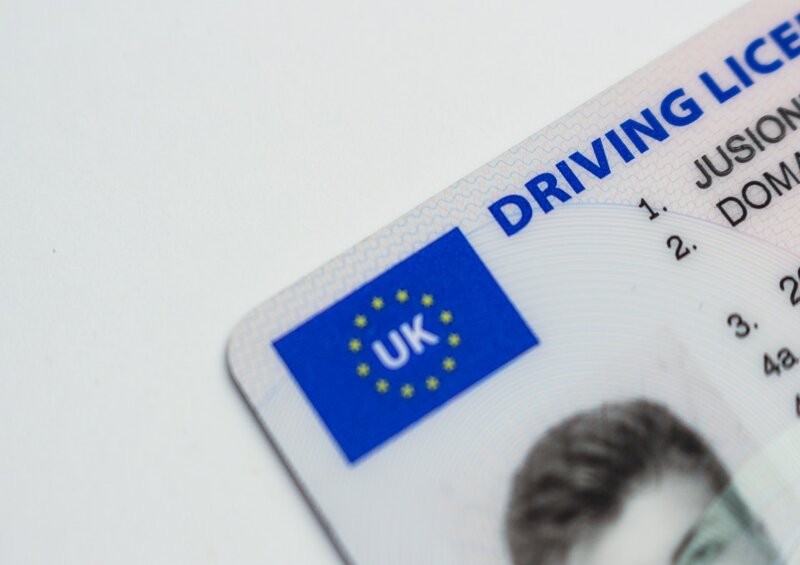Why do insurance companies check your driving licence?

Insurance companies use a variety of factors to determine how much they will charge for coverage. One of the most important factors they consider is the driver's history of accidents and violations. To get a full picture of a driver's history, insurance companies will often check their driving licence.
In this article, we will explore the reasons why insurance companies check your driving licence and what information they are looking for.
Verification of identity
One of the primary reasons why insurance companies check your driving licence is to verify your identity. When you apply for insurance, you will be asked to provide personal information such as your name, address, and date of birth. Insurance companies will check this information against your driving licence to ensure that everything matches up.
By verifying your identity, insurance companies can prevent fraud and ensure that the policy is issued to the correct person. This is especially important for young drivers or individuals who have recently moved and may not have an established credit history.
Checking for endorsements and convictions
Insurance companies will also check your driving licence for endorsements and convictions. An endorsement is an additional qualification or restriction that is added to your licence, such as a motorcycle or HGV license. A conviction is a criminal offence, such as speeding, that is added to your licence.
Endorsements and convictions can have a significant impact on the cost of your insurance premium. If you have an endorsement or conviction, you may be seen as a higher risk driver and may be charged a higher premium.
If you are curious about what endorsements or convictions are on your driving licence, you can check your driving record with the Driver and Vehicle Licensing Agency (DVLA) in the UK. Here are the steps you need to follow:
- Visit the DVLA website: Go to https://www.gov.uk/view-driving-licence and click the green "Start Now" button.
- Enter your details: You will need to enter your driving licence number, your National Insurance number, and your postcode.
- Verify your identity: You will need to answer a series of security questions to verify your identity. These questions may include information about your driving history, such as the make and model of your car or the date of your last driving test.
- View your driving record: Once you have successfully verified your identity, you will be able to view your driving record. This will show you any endorsements, penalty points, or disqualifications that are on your driving licence.
It is important to note that you can only check your own driving record. You cannot check someone else's record, unless you have their permission or are a registered employer or car hire company.
If you find that there are errors on your driving record, you should contact the DVLA as soon as possible to get them corrected. Incorrect information on your driving record could lead to higher insurance premiums or even legal issues if you are accused of a driving offence that you did not commit.
Checking for penalty points
Penalty points are added to your driving licence when you commit a driving offence, such as speeding or running a red light. Insurance companies will check your driving licence to see if you have any penalty points.
If you have penalty points, you may be considered a higher risk driver and may be charged a higher premium. Additionally, if you accumulate too many penalty points, your licence may be suspended or revoked, which would make it difficult to get insurance coverage.
Checking for driving experience
Insurance companies will also check your driving licence to see how long you have been driving. The longer you have been driving, the more experience you have behind the wheel, which can make you a safer driver.
If you are a new driver or have only been driving for a short period of time, you may be considered a higher risk driver and may be charged a higher premium. Conversely, if you have been driving for many years without any accidents or violations, you may be eligible for a lower premium.
Checking for medical conditions
In addition to checking your driving history, insurance companies may also check your driving licence for medical conditions. Certain medical conditions can affect your ability to drive safely, and insurance companies may want to know about these conditions before issuing a policy.
If you have a medical condition that affects your driving ability, you may be required to provide additional information or documentation. Depending on the severity of the condition, you may be considered a higher risk driver and may be charged a higher premium.
Honesty is always the best policy
In conclusion, insurance companies check your driving licence for a variety of reasons, including verifying your identity, checking for endorsements and convictions, checking for penalty points, checking for driving experience, and checking for medical conditions.
If you are applying for insurance, it is important to be honest about your driving history and any medical conditions you may have. While it may be tempting to hide certain information in order to get a lower premium, this can ultimately lead to problems down the road if you need to file a claim or are involved in an accident.
By providing accurate information and working with your insurance company to find the best policy for your needs, you can ensure that you have the coverage you need at a price you can afford.
Compare car insurance quotes now
Tap the button below to get a quote now to see how much you could save on car insurance.
